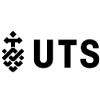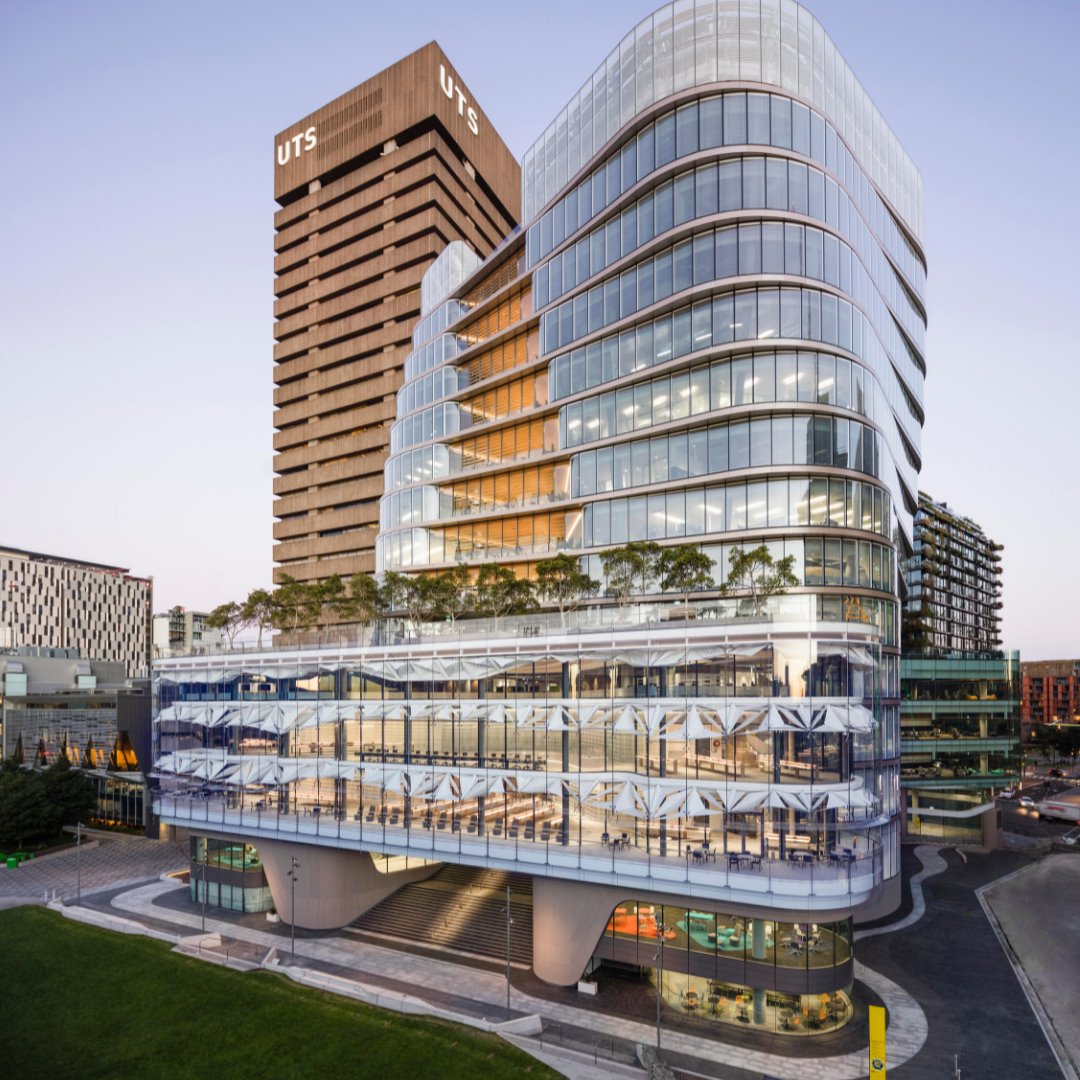PO Box 123, Ultimo NSW 2007, Australia
Career Counselling

University of Technology Sydney is a young public research university located in Australia, and ranked within the top 100 in the world. Established in 1988, it has grown quickly both in size (over 44,000 students, with 25% of them being from outside Australia) and in research output and reputation (100% of research rated as world level).
UTS has one campus with 3 locations and 3 off-campus facilities. Broadway, the main location, is next to Sydney’s CBD, and is home to most of the faculties and the majestic UTS Tower....
| Establishment year | 1988 [Precursor established in 1964] |
| Total Students | 44,615 |
| International Students | 11,180 |
| QS World University Rankings 2024 | 90 |
| Campus Size | N/A |
| Total Number of Campuses | 3 Locations + 3 Off-Campus Facilities |
| University Website | https://www.uts.edu.au/ |
| No. of Schools and Divisions | 9 Faculties, further divided into Schools |
| Nobel Prize Winner Alumni | 0 |
| No. of Education Programs | 130+ (undergraduate), 210 (postgraduate) |
| Student to Faculty ratio | 24:1 |
University of Technology Sydney offers undergraduate and postgraduate courses through 9 Faculties, which are further subdivided into schools and groups.
International applicants to undergraduate courses at UTS will need to achieve a minimum score in the equivalent of the Australian Year 12 examinations. These criteria vary by country; the University maintains a list of entry scores by curriculum and nation. Every candidate should also check individual course pages; these may have additional requirements in terms of prerequisite subjects, specific grades, or submissions, like statements of purpose or creative portfolios.
International and domestic postgraduate applicants must have completed, or be in the final year of, an undergraduate degree from a recognised university. There is no fixed minimum performance level; however, the performance and UG grades will be used to evaluate the application. Individual course pages contain data about additional submissions e.g. personal statements, CVs, and portfolios.
All students who apply to UTS must satisfy English proficiency requirements. The easiest way to do this, especially for postgraduate courses, is to show evidence of an earlier degree where the medium of instruction was English. For other students, recent English language standardised scores (e.g. IELTS 7.5 overall, TOEFL 102-109, PTE 73-78 overall) must be submitted.
Domestic applicants to UG courses at the University must satisfy the following minimum requirements for all courses: completion of a High School Certificate Year 12 examination in New South Wales (or equivalent in the rest of Australia) with an Australian Tertiary Admission Rank (ATAR) or 69 or above, and having an age of at least 20 as of March 1 in the year of application. Course-specific additional criteria may apply, similar to those for international applicants.
Undergraduate domestic applicants to UTS should complete the following steps:
Postgraduate domestic applicants follow a similar process; however, the application must be submitted through the University’s Student Portal; which allows candidates to attach documents and other requirements to their applications.
International applicants (both UG and PG) should keep the following steps in mind:
Domestic students (from Australia or New Zealand) at UTS pay lower fees for undergraduate courses, under the Commonwealth Supported Place (CSP) scheme. The student contribution fee in CSPs is one of these amounts: $4,124 (for programs related to Education, English, and Mathematics), $8,301 (for programs like Engineering and Performing Arts), $11,800 (for programs related to Medicine, Dentistry, and Veterinary Science), and $15,142 (for programs like Law, Accounting, and Communications).
Most postgraduate domestic students pay Domestic Tuition Fees for their courses; these are substantially higher than the student contribution amounts that all undergraduates pay, but are usually between 10% and 30% lower than international tuition fees.
International undergraduate students pay fees that vary by program: indicative annual tuition fees for some degrees are: Bachelor of Business ($42,800), Bachelor of Engineering ($50,000), and Bachelor of Laws (Honours) ($48,020).
International postgraduate students also have variable tuition fees, which are usually within 10% of UG international fees: some examples include the MBA ($45,790), Master of Engineering ($44,240), and Master of Laws ($50,000 per year).
In addition to tuition fees, the University also charges a Student Services and Amenities Fee, capped at a maximum of $328 for 2023.
The University recommends that students budget between $24,492 and $32,292 per year as living costs, to be spent on rent, groceries, phone and internet, and transport costs.

Though UTS has only one campus, it is spread over multiple precincts or locations. Its three main locations are all close to the Central Business District of Sydney. Broadway, the primary precinct, houses 6 of the 9 Faculty buildings, located near the world’s tallest vertical garden and featuring the UTS Tower, 120 metres high, that can be seen from a distance during both day and night. Haymarket is a meeting place for ancient and modern architecture and influences. Blackfriars is a heritage location that is set to become an innovation hub to forge stronger connections with industry. UTS also maintains facilities for specific functions at three other locations in the city of Sydney: Moore Park hosts the sports, exercise, and sports media programs of the University. Botany is home to the UTS Tech Lab; this futuristic complex is a major competitive advantage, enabling world class research. The Prince of Wales Hospital works in the field of youth mental health.
Physical activity and fitness are very important components of student life at UTS. The ActivateFit Gym is the campus hub of indoor fitness activities: including cardio training areas, functional and weight training zones, group fitness studios, and personal trainers - all provided to the University community at affordable prices. Students can also book one of the two sports stadia / halls (Ross Milbourne Sports Hall and Sydney Boys High Stadium) on campus, for friendly games, inter-faculty competitions, or club training sessions.

The University has over 180 clubs, of which 25% are sports societies, including the Social Sports Association, for casual play, and over 40 other clubs, from Athletics to Water Polo. These Clubs and the School of Sport and Exercise organise regular events, for example, the Pride Run, introductions to different sports, e.g. fencing, Women in Sport events, and several competitions at every level of skill.
The UTS Careers team helps students of the University with career advice and securing employment from their entry to up to two years after they graduate. UTS Careers works in hybrid mode, with online interventions (resources, online databases and applications, and resume tools) in addition to in-person assistance (events, networking seminars, personalised guidance from counsellors, and interview preparation help). The CareerHub portal acts as the online home of UTS Careers and allows students to apply to internship and job opportunities that recruit directly via the university.
UTS maintains an online database of all scholarships offered by the University to undergraduate, postgraduate, domestic, and international students.
International undergraduate students can apply for several scholarships, most of which award an amount towards the tuition fee. The Undergraduate Academic Excellence International Scholarship entails a 25% tuition fee discount for meritorious students. The prestigious UTS Vice-Chancellor’s International Undergraduate Scholarship awards a full tuition fee waiver for applicants who display academic excellence, and selects awardees based on their previous grades and on the answers given in the online scholarship application.
International postgraduate students at UTS have equivalents of the same two scholarships listed above; however, the Postgraduate Academic Excellence International Scholarship also awards 35% fee reductions to some awardees. There are also different country-specific scholarships available for nationals of Vietnam, certain Latin American countries, and China; these typically involve an award of $10,000 per year.
Domestic students (both UG and PG) at UTS can access a variety of scholarships, typically involving a flat amount towards tuition fees. One of the flagship prizes for domestic students is the Madison Scholarship for Women in Engineering, which awards up to $50,000 to female undergraduates at UTS who display academic excellence and the motivation (in the scholarship application and interview) to study and excel in any field of engineering.
Research students are awarded funding assistance in the form of a living allowance stipend of $32,500 per year.
